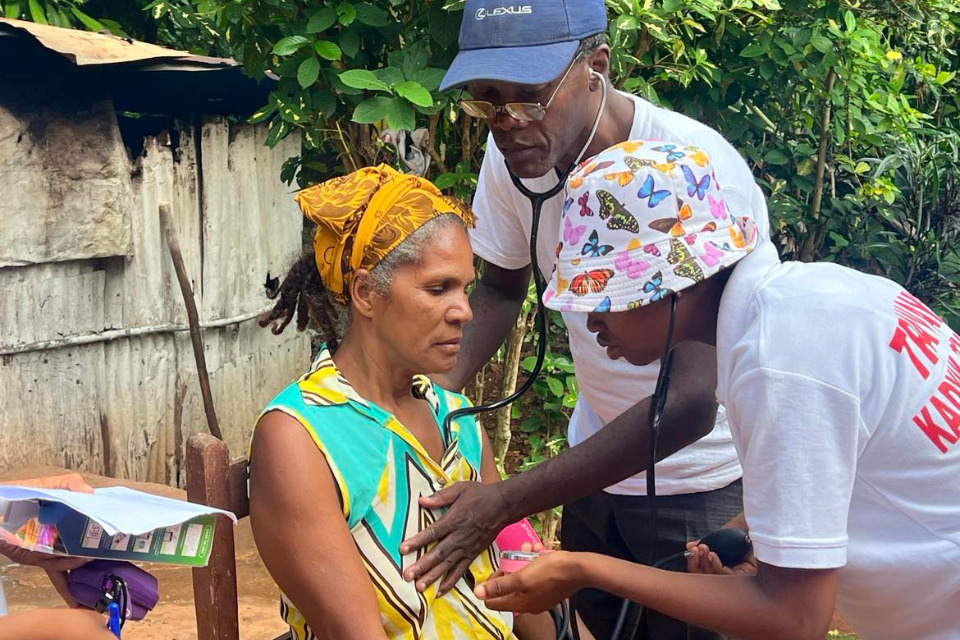Valerie Mossman-Celestin just returned from her first trip to Haiti in five years. It was a time to reconnect with the community, reassure the staff, and recreate the ministry.
KAY DEMOSS
Michigan Conference Communications
Valerie Mossman-Celestin has been the Executive Director of HAPI (Haitian Assets for Peace International) since 2007. She works from her home in Hudsonville, MI, with occasional trips to HAPI’s mountaintop home in Mizak.
When Valerie came back to Hudsonville from Haiti in 2018, she didn’t know she would not return to HAPI for five years. A pandemic, political unrest, gang violence, and a Level 4 (Do Not Travel) advisory of the U.S. government have all conspired to keep her stateside.
Nevertheless, much has happened in Mizak in the meantime. Valerie’s long-distance leadership has borne fruit, as the staff in Haiti have long been empowered and trained for ministry with their community.
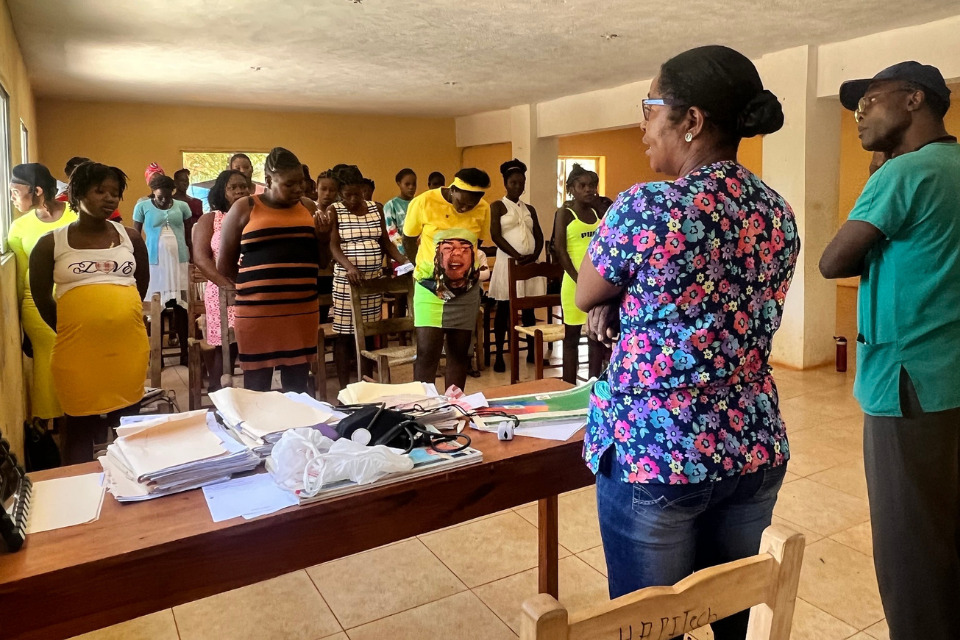
Generous donations from Michigan churches helped HAPI recover cash and equipment lost in a fire in 2021. In 2022, the “Start Right” initiative expanded HAPI’s care for mothers and newborns. Last year, the Heart2Heart program was launched to combat women’s heart disease in Haiti. A grant from the General Board of Global Ministries helped purchase EKG and ultrasound equipment for that effort. Dollars were also allocated for staff training in using the machines, and some basic training has taken place.
In the fall of 2022, a Haitian cardiologist, Dr. Gédéon Gélin, working closely with Valerie, put together a new consortium aimed at heart health for Haiti. New collaborations continued as CardioStart International provided HAPI with two echocardiogram units.
Then, in May 2023, there was a major new development. Dr. Gédéon registered the Haiti Heart Institute as a Haitian social enterprise. In respect of their close working relationship and shared philosophy of Haitian empowerment, Dr. Gédéon suggested that the new entity be “under the flagship of” Haitian Assets for Peace International. Since then, Valerie has served as the Executive Director of HAPI/Haiti Heart Institute (HHHI).
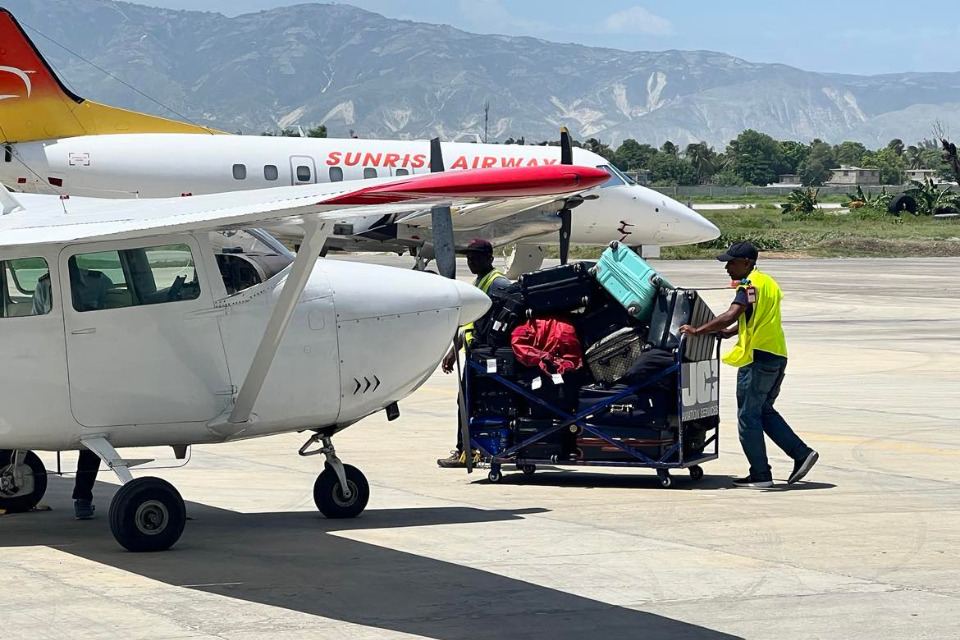
HHHI now has the equipment. CardioStart is ready with the curriculum for advanced training toward international certification. The important next step in the start-up of the Haiti Heart Institute is to find cardiologists and sonographers willing to travel to Mizak to train others in using the life-saving equipment.
The time had come for Valerie to board a flight to Haiti. She landed in Jacmel on June 22 and was back in Michigan 12 days later.
Reconnecting and Reassuring
“It was time for me to go,” Valerie says. “I needed to get on the ground to see what was happening with HAPI and the new heart project.” Her visit was also an opportunity to work directly with Dr. Gédéon to organize the Haiti Heart Institute.
“Before I can ask others to travel to Haiti, I had to understand the logistics,” Valerie notes. “To know it is safe.” The U.S. government has restricted travel to Haiti since 2019 due to escalated gang violence. However, Valerie’s contacts in Haiti report that there are large sections of the country that are business as usual. “People I know in the south and southeast are out there doing their thing,” she says. “Life is happening like normal—except now people are skinnier because access to jobs and resources has sharply decreased.”
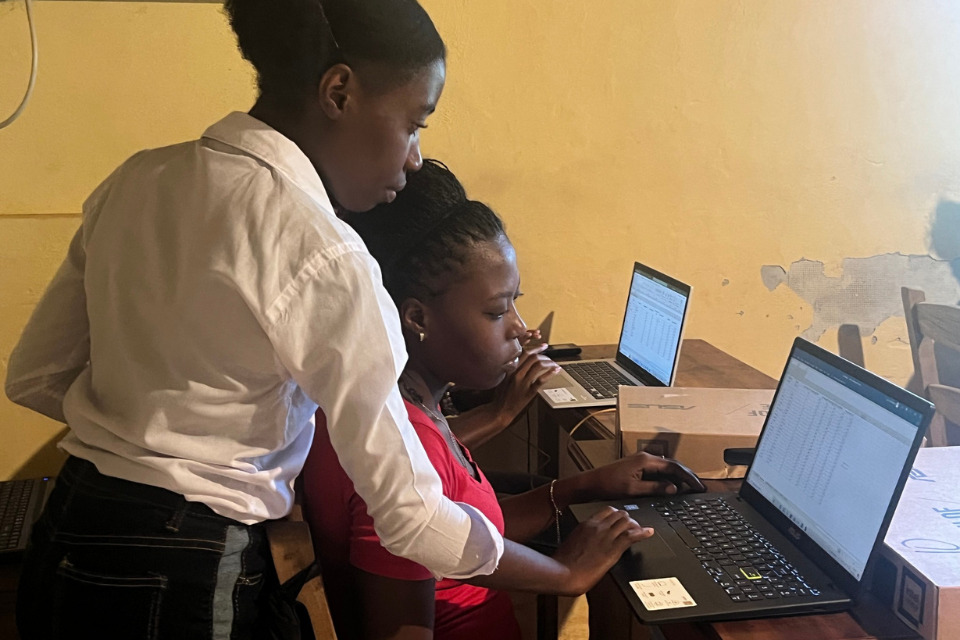
She quotes Harper’s Index. “In the month of January, 600 Haitians were murdered by gangs while 592 per day died of hunger. Businesses and missions have pulled out of Haiti because of both gang activity and the travel advisory.” She believes the nationwide advisory should be replaced with warnings targeted to dangerous areas. “This could encourage Americans and those in the Haitian Diaspora to return to places that remain peaceful,” she adds.
Valerie was surprised by the welcome she received. “I felt sort of like a president going to the front lines,” Valerie remembers. “People thanked me over and over again. Presence is so important! People feel abandoned. My presence gave Haitians a sense of hope. They are not seeing any light at the end of the tunnel right now.”
Reassessing and Revisioning
While HAPI’s ministry has grown over the past five years, Valerie knew the time was right for some face-to-face time with new staff. “We’ve lost some people over the past five years,” she says. “Yolande is the only staff person with me since the beginning. There are a few other long-term employees.” There was history and philosophy to be reviewed between director and newcomers. “I needed to build relationships and to reaffirm the ethos of HAPI,” Valerie explains.
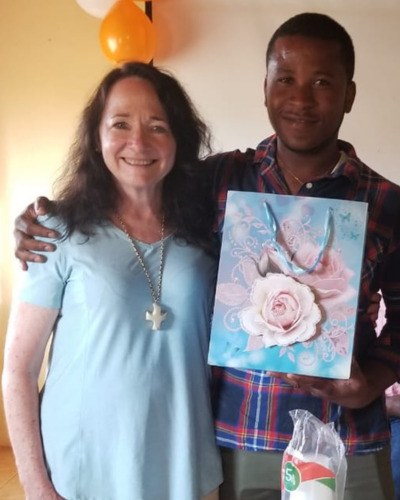
Team building began with a discussion on servant leadership that ended with a handwashing. Valerie reports that the example of Jesus was a powerful talking point and call to action. “His model was to be reproduced in us. That was much more powerful than a lecture about principles of service,” she says. “Actions speak more loudly than words. ACTION became the theme of our week together.”
Significant transitions are happening. Mario Damis, director of HAPITech vocational training, arrived on July 24 in the United States to further his education. “I thought I would have to close HAPITech,” Valerie notes. “But when I arrived, I met 117 young people thanking me constantly for the opportunity to learn.” So, rather than close HAPITech, she is considering a shift away from trade skills to focus more fully on English language, computer literacy, and medical technology training.
Just as HAPI says goodbye to Mario Damis, they say hello to Riouse Dieurly Zephir. Riouse is the first resident assigned to HAPI by Haiti’s Ministry of Public Health. She will participate in HAPI’s maternity care, health exams, and delivery. This young woman is a wonderful example of the HAPI ethos. Riouse is the daughter of Yolande, who first came to Mizak in 2006 as an embroidery artisan putting her kids through school. Today, Yolande serves as HAPI’s Director of Community Health and is in charge of StartRight and Heart2Heart’s preventative cardiac field nurses.
Sixteen years after its founding as a craft cooperative, HAPI is strengthening its commitment to healthcare as its central focus. “We are pruning for more growth,” Valerie notes. “Our goal is to have a cardiac teaching hospital in Mizak. No cardiac hospital exists in Haiti. This center would be the transformational change that helps people live longer and healthier lives, provides employment for HAPITech youth, and builds up the entire economy of the region.”
HAPI’s vision—Mizak, Haiti, is a prosperous community: peaceful and self-sustainable, with opportunity for fair–wage jobs, health, and education available for ALL!—remains the same. The addition of the Haiti Health Institute provides new ways to make that vision come alive.
Recruiting and Recreating
Haiti is currently experiencing an exodus of trained healthcare workers to the United States. Six of sixteen cardiologists have left the country in recent years. This increases the need for trained personnel in Haiti. The Haiti Heart Institute plans to increase the level of cardiac care by training nurses in using the equipment. This is a counter-cultural approach in a country where only doctors perform EKGs and echocardiograms.
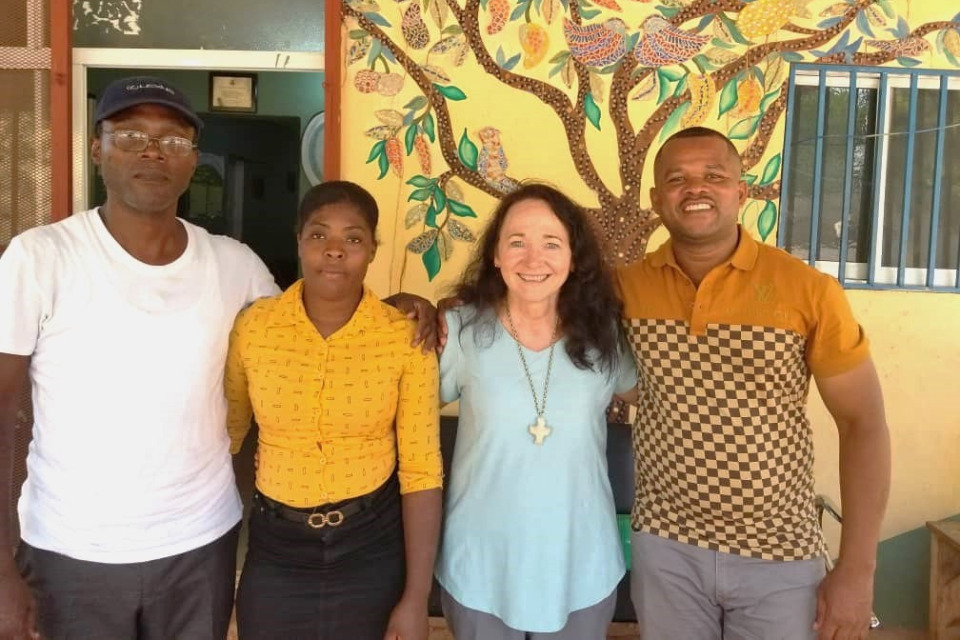
“Dr. Gédéon has told me that it is unheard of for nurses to touch these machines,” Valerie states. “We understand that teaching nurses how to read an EKG and then send it to Dr. Gédéon for interpretation is a radical departure from the norm.” She adds that CardioStart has done this initiative in other places, such as Nepal. “Every poor country holds knowledge in the hands of a few,” Valerie continues. “But when there is a shortage of healthcare, you need to drive medical training to a lower level, or care is hoarded.” While some fear trained nurses will leave Haiti for work abroad, Valerie says, “At HAPI, we want to put many in the pipeline. Haiti may lose a percentage, but more will remain.” Those doing CardioStart training at HAPI will be asked to sign a two-year contract. During that time, they must train others.
Valerie and Dr. Gédéon are engaged in the fundraising needed to build a cardiac teaching hospital in Mizak. They hope to receive a grant from the W.K. Kellogg Foundation to pay for a master plan from Build Health International. That organization developed the site plan for the country’s other teaching hospital in Central Haiti, Partners in Health.
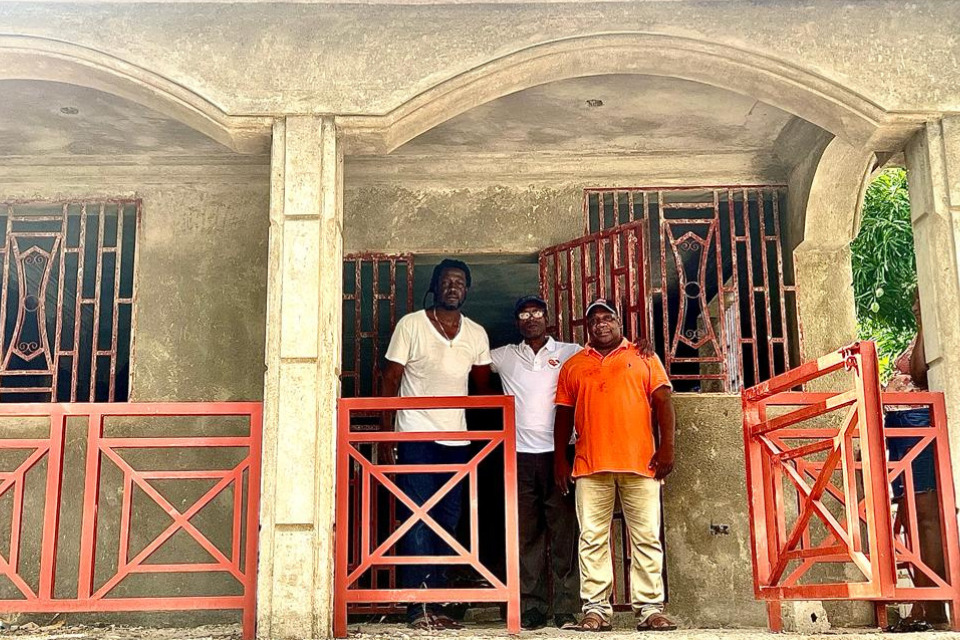
However, training can begin before the bricks and mortar come together for this new facility. Basic cardiac care services have begun with the introduction of EKGs at the Felisane Health Center on the Mizak campus. Dr. Gédéon said, “People can hardly believe that a rural clinic where no one was trained a year ago can be offering EKGs and performing basic obstetric ultrasounds!”
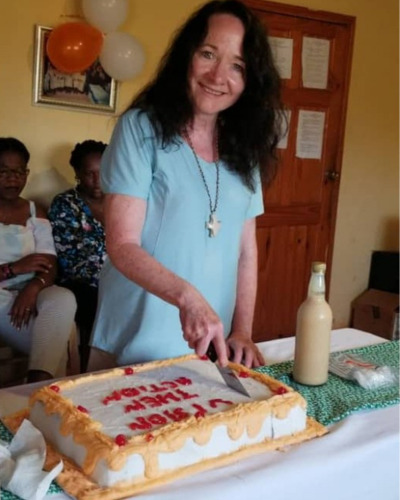
Valerie is now looking for cardiologists and sonographers who can teach others to do echocardiograms. Individuals are asked to pay for their transportation to Haiti, arranged by Valerie through CardioStart International. A minimum two-week commitment is needed. The General Board of Global Ministries has provided $26,000 to build a three-room unit to house trainers.
HAPI/Haiti Heart Institute has a three-point strategy: medical training, treatment of heart diseases, and preventative cardiac care. Dr. Gédéon and Valerie affectionately refer to this as their “deep and wide” approach to cardiac care: deep in training Haitian professionals and wide in working in collaboration with others to reach the 500,000 persons residing in Southeast Haiti and beyond. Looking further into the future, Valerie says, “We’re building a robust foundation for a Haitian-led Cardiovascular Care Corridor, where the expertise is homegrown and the care is delivered by Haitians for Haitians.”
HHHI promises hope during a seemingly hopeless time. “Extending the life expectancy of Haitians living in a country two hours off our U.S. shores is not merely a smart goal nor a slogan, or a policy to address structural inequities,” Valerie asserts. “It is upholding an innate right endowed by our Creator. This is the real heart work.”
Partners are needed. “We talk a lot about being the hands and feet of Christ,” Valerie concludes. “This is an opportunity to empower people on the ground to be the hands and feet of Christ. Let’s give them the resources to do it.”
Recommended reading: an excellent diary of Valerie Mossman-Celestin’s visit to Haiti can be found on Facebook/HAPI. Haitian Assets for Peace International is an Advance Project of the General Board of Global Ministries of The United Methodist Church #3020490. HAPI is a Step 4 Ministry Partner of EngageMI, the mission program of the Michigan Conference.
Last Updated on August 8, 2023

